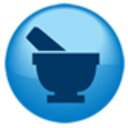Diosgenin, a steroidal saponin, inhibits STAT3 signaling pathway leading to suppression of proliferation and chemosensitization of human hepatocellular carcinoma cells.
Słowa kluczowe
Abstrakcyjny
Constitutive activation of STAT3 has been shown in several human cancers and transformed cell lines including hepatocellular carcinoma (HCC). In the present report, we investigated whether diosgenin, a steroidal saponin isolated from fenugreek can modulate the STAT3 signaling pathway. We found that diosgenin inhibited both constitutive and inducible activation of STAT3 with no effect on STAT5. The activation of c-Src, JAK1 and JAK2 implicated in STAT3 activation, were also suppressed by this saponin. Pervanadate reversed the diosgenin-induced downregulation of STAT3, suggesting the involvement of a protein tyrosine phosphatase. Indeed, we found that diosgenin can induce the expression of Src homology 2 phosphatase 2 (SH-PTP2) that correlated with downregulation of constitutive STAT3 activation. Diosgenin also downregulated the expression of various STAT3-regulated gene products, inhibited proliferation and potentiated the apoptotic effects of paclitaxel and doxorubicin. Overall, these results suggest that diosgenin is a novel blocker of the STAT3 activation pathway, with a potential role in the treatment of HCC and other cancers.


